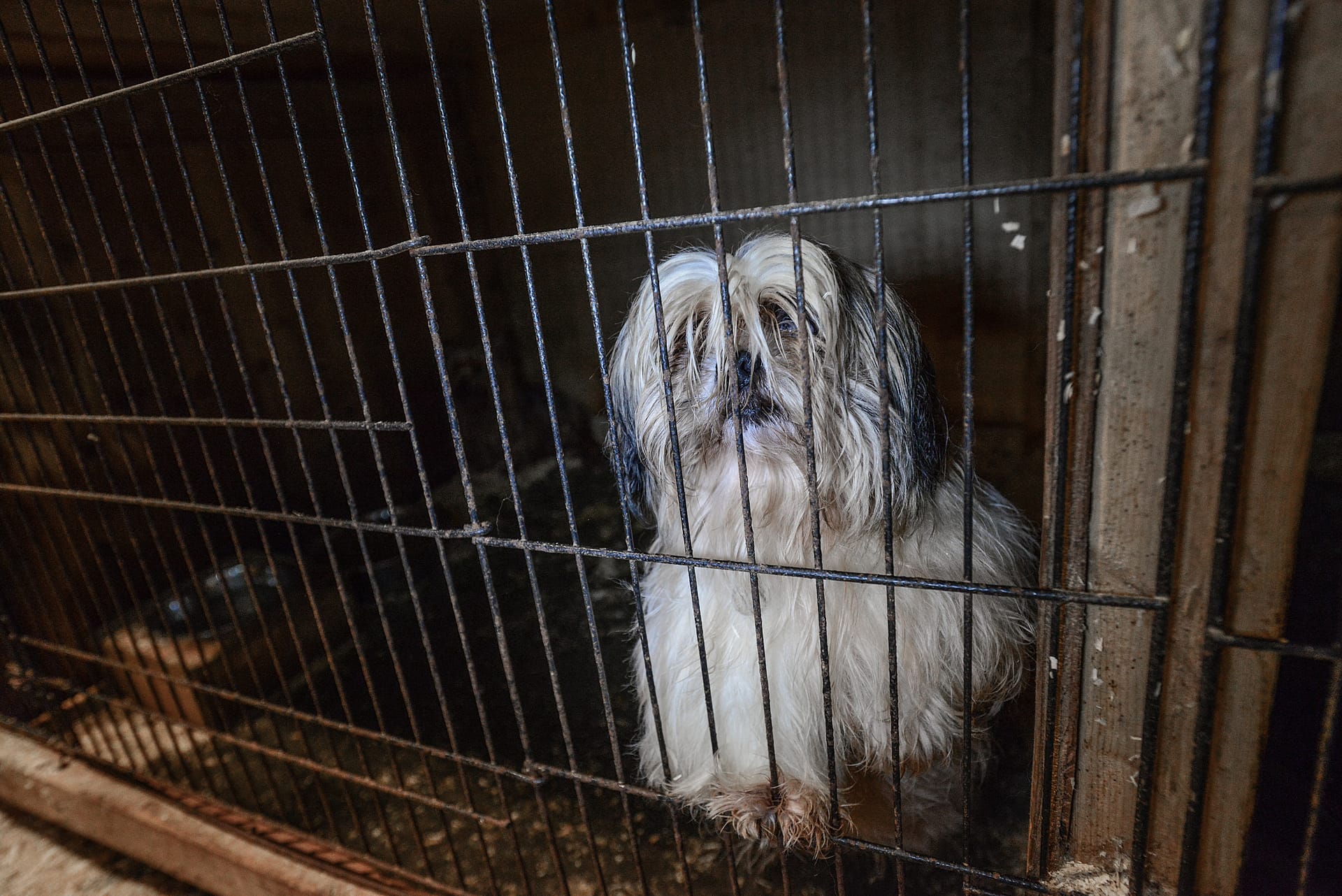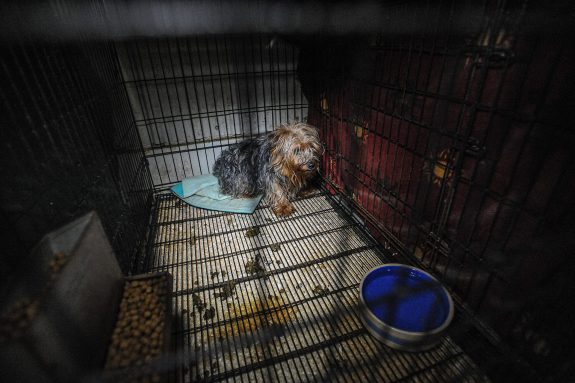The Ontario government has just introduced a toothless bill that will fail to tackle puppy mill cruelty in the province.
The Preventing Unethical Puppy Sales Act (PUPS Act) was introduced on December 4, 2023, and would amend the Provincial Animal Welfare Services Act to prohibit some harmful dog breeding practices.
The bill would ban the breeding of female dogs who are under a year old, separating puppies from their mother before they are eight weeks old, and require that dogs with a contagious disease are kept away from others. But it fails to create standards for adequate housing, food, exercise, socialization, and medical care, as well as screening for genetic problems that can have serious health and welfare impacts on puppies.
While the bill requires that dogs be kept in a sanitary environment, it doesn’t protect dogs and puppies from being caged 24/7, or kept in inadequate conditions for their complex needs. It also fails to limit the number of dogs who can be kept at a facility—which is one of the biggest factors impacting dogs used for breeding.
One of the biggest failures of the PUPS Act is that it does not require dog breeders to be licenced. Without a licensing regime, there is no way to keep track of who is breeding dogs and where they are operating, which makes animal cruelty law enforcement nearly impossible. Without the ability to cancel a license, authorities have little ability to shut down a problematic breeder.
Authorities are often only made aware of illegal cruelty at puppy mills because a member of the public with firsthand knowledge contacts law enforcement. Puppy mills and other breeders keep animals behind closed doors in places like barns and basements, and away from public view. That’s why it’s so rare for puppy mills to be caught and charged under current laws.
Meanwhile, many jurisdictions in North America and the EU do require that breeders be licensed, and follow robust welfare requirements such as providing proper food, water, exercise, shelter, professional veterinary care and breeding plans, and the need to prioritize dogs’ health and function over their aesthetic appearance.

Photo: Jo-Anne McArthur | We Animals Media with the Montreal SPCA
It’s Time to End the Puppy Mill Crisis
Puppy mills are commercial breeding operations which force dogs to produce litter after litter of puppies, often in deplorable conditions. These facilities can have dozens or even hundreds of dogs, and they’re often confined in small cages, without access to regular exercise, socialization, or veterinary care. Animals from puppy mills and backyard breeders often become ill or injured, whether from chronic conditions, short-term abuse or neglect, or genetic defects.
Numerous investigations and subsequent seizures have shown the horrifying conditions that animals in puppy mills endure, and the inadequate laws that have allowed them to persist. When investigators go into puppy mills, they often find filthy dogs, covered in urine and feces, and with matted fur. The smell of ammonia can often be overwhelming.
Puppy mills and backyard breeders often sell dogs in pet stores, or online, on classified sites like Kijiji and Craigslist.
Take action today! Tell the Ontario government to require licenses for breeders, create strong legal standards for breeding and care, and fix the many glaring welfare gaps in the PUPS Act. Additionally, the commercial sale of dogs in online classified listings or in pet stores should be banned. Instead, pet stores should work with rescue groups to adopt out dogs in need.
Banner: Jo-Anne McArthur | We Animals Media with the Montreal SPCA




